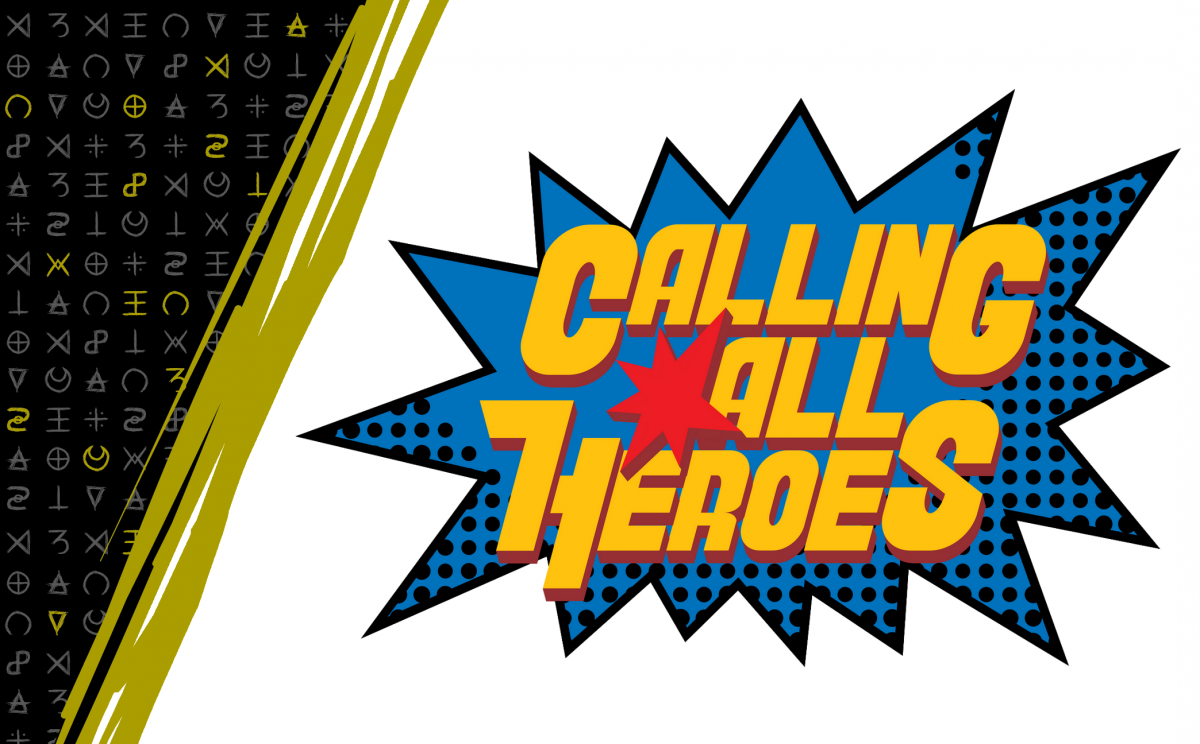There’s something magical about superheroes. It’s been more than 80 years since we first saw a man in a colorful uniform making bullets bounce from his skin and jumping really high — it would take four years before Superman learned to fly. And even though the creation of writer Jerry Siegel and artist Joe Shuster builds upon pulp culture in general and other known heroes (like The Phantom and Flash Gordon), it was in Action Comics #1, published in 1938, that a new genre of storytelling would be really born. All these years later, superheroes are still a central element of pop culture; both children and adults dream about gaining the skies, fighting supervillains and saving the world.
Some of us still read comic books, while hundreds of millions of people consume movies, TV shows and videogames inspired by these comic books. We all know about shared universes and parallel dimensions, and the origin story of classic superheroes are repeated as contemporary mythological tales. And even if the process intensified in the last two decades, huge corporations keep feeding us more and more superhero productions since the beginning of this new genre — in 1941 we already had the first Captain Marvel (nowadays known as Shazam) live-action serial, and a Superman cartoon, both screening at cinemas. Superheroes are entertaining, and we all need good entertainment, but that’s not enough to explain their success. Why, then, we, as a society, love superheroes?

It is not rare that we all demand ourselves what would our favorite superpower be, some of us keep doing that even when we grow up and become “adults” — basically, children with anxiety and bills to pay. This fantasy quality of superheroes explains a part of their success; we all need to escape from our harsh reality from time to time, and it’s fun to imagine a world where all our problems can be taken out with a punch. Fantasy helps us survive, since it gives us hope to imagine a future where the good will prevail over evil, and we’ll finally have a happy ending. In the case of superheroes, the fantasy can be even dangerous, when it asks ourselves constantly to believe in a savior, instead of pointing out how we are responsible for the world we live in. Escapism is an important part of all fantasy, but there’s more to superheroes than this.
What makes superhero fantasy different from other kinds of fantasy is how close it plays to reality itself. Superheroes stories usually don’t take place in distant times in history, be it the past or the future, or in alternate worlds and reality that have little to do with what we see in our everyday life. The main landscape of superhero stories is the city, a grey mass of buildings, stores, and people that most of us know and recognize as the place we live in. It’s even easier, then, to let imagination run free and put ourselves in the shoes and capes of these mighty warriors. And, being in the city, the problems that are solved in the pages of comic books are also our direct problems: crime, urban violence, evil corporations, poverty. Yes, it’s true that more modern superhero tales focus a lot on the epic battles and not so much on human-level worries. But, in its origin, that was all superheroes comic books were about.
It might be hard for people who know Superman nowadays to imagine him as anything more than a symbol for the establishment, a defender of order and of the institutions. But the original Superman was a man of the people, less concerned about respecting rules than helping the little man and woman, who, in the decade of 1930, was still suffering from the Great Depression. The biggest competitor of Superman, Captain Marvel/Shazam sold a lot more comics as an orphan child gaining superpowers, a family-based narrative that reflected both how impotent people felt and how great would be to have superpowers that could fix life. The Marvel-way of writing, with grounded characters sharing everyday life on the streets, was the best contribution of Stan Lee to this tradition, that put character as the center of each story, instead of symbology or the possible spectacle.
If superheroes are still alive, it is not because of the huge clashes of superpowered people (that can be the most boring parts of contemporary superhero movies). It’s because superheroes can be closer to us than any other kind of fantasy genre, sharing the same flaws we have, experiencing the same everyday problems, surviving the injustice of the status quo, and — when given some power — dedicating their energy to improving everyone’s lives. In its origin, the superhero genre had a beautiful sense of collectivity, and that’s the main element we need to rescue to keep these stories alive and relevant.

And then comes Calling All Heroes. Another superhero project? Yes! But one that comes from a place of passion, from children that grew up with these amazing characters, but that also understood their strength is not in their capacity of being different from everyone else, but their origin as flawed humans. More than fireworks, smokes and mirrors, Calling All Heroes came to be as a project that wants to be fun and entertaining, but also rescue the simplicity of retro superhero comic books, with a direct concern for how these powered people can actually help us to confront our real problems and take a stand against injustice, wherever it might hide. It’s not just a copy of the past, though; as a product of their time, classic superhero stories can be filled with problematic takes on certain social groups. To us, a diversity that reflects more the world and the people who inhabit it is more important than copying aspects of retro comics that we cannot relate to. And more importantly, this is even closer to the spirit of retro comics: valuing community, fighting for those who can’t, standing against the powerful.
We have several projects in development, and we plan to stay around for a long time. And we hope, above all, that you can keep us company on this journey. Any media product is nothing without users, and our main concern is to create memorable experiences, engaging and accessible to everyone who enjoys superheroes, even without a vast superhero background (or even a comic background). So, keep in touch, let us know what you love about superheroes, and let’s build together something that’s going to be unforgettable.



Join Our Coven